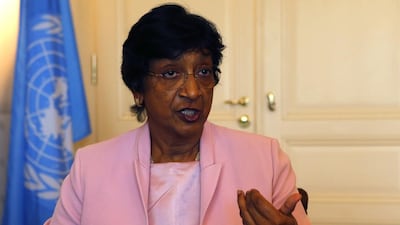As anyone who has spent any time in an office environment will know, you learn fairly quickly to stay clear of two topics in conversations with your colleagues: politics and religion.
Work environments should be open arenas where diversity is nurtured and embraced, allowing for creativity to flourish, meritocracy to rule and teamwork to thrive. But overriding all this, a workplace is still, to some degree, shaped by world events.
So, during a recent workshop for women in the corporate world, I found myself compelled to point to the events our region has witnessed over recent weeks. In the midst of these brutal conflicts and the rising toll of human lives, it gets harder to hold onto hope. It also becomes very easy to criticise human nature and question our ability to choose the higher moral ground.
From Gaza to Iraq and Syria, from Lebanon to Libya, everywhere we look there is a consistent failure to coexist and thrive. But something else has emerged to help me rise above the utter despair of our current situation: women in leadership roles.
Over the past month, we have heard voices being raised across the board asking for justice, tolerance and a unity against terror and sabotage.
These voices of ordinary and extraordinary people are critical to our understanding of these conflicts. What is more critical, however, was hearing more women raise their voice.
On one occasion this was the voice of Hanan Ashrawi, Palestine Liberation Organisation executive committee member, delivering a moving interview with ABC News talking against the crisis in Gaza. In her interview, she was articulate, concise, factual and, most importantly, human.
Fiyan Dakhee, the Iraqi politician, stood up in parliament to call for unity in the name of humanity against the treatment of the Yazidi minority in Iraq.
Through her tears, she courageously challenged the parliamentary speaker who had attempted to cut her off. In the midst of her raging emotions, she pointed out all those who have suffered, from all sects and religions. Her call was universal.
And there are many more. Navi Pillay was one of the very few voices in the United Nations, if not the only one, who spoke loudly and clearly about Israel’s defiance of international law. She also ventured to criticise the US for failing to use its influence to halt the carnage in Gaza. She said what most shied away from.
So did Baroness Warsi as she resigned from her post in the British government. In her resignation letter, she announced her inability to stand behind the “morally indefensible” position of Britain on Gaza.
In the leadership workshop, I recounted the acts of these women, and those of many more from other walks of life.
I told the participants that a future different from our present relies on this new way of leadership.
This is leadership that is entrenched in elements of courage, resolve and humanity. This is one that speaks of justice, accountability, forgiveness, equality and universal peace. These are qualities that lend themselves naturally to women and that emanate from their roles as givers of life, as nurturers and caregivers.
I ended the session with a quote from Zainab Salbi. In her 2006 book, The Other Side of War, she takes her readers into the heart of Afghanistan, Bosnia and Herzegovina, Colombia, Rwanda and Sudan to hear the stories of women who daily reclaim the lives of their families and communities from the ashes of conflict.
“War is not a computer-generated missile striking a digital map. War is the colour of earth as it explodes in our faces, the sound of a child pleading, the smell of smoke and fear.
“Women survivors of war are not the single image portrayed on the television screen, but the glue that holds families and countries together.
“Perhaps by understanding women, and the other side of war, we will have more humility in our discussions of wars, perhaps it is time to listen to women’s side of history,” she writes.
Perhaps it is time to give our women leaders a chance to “peace” this world together.
Rana Askoul is a Dubai-based writer
On Twitter: @RanaAskoul

